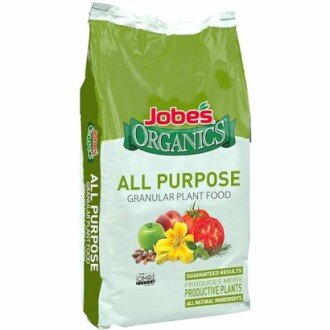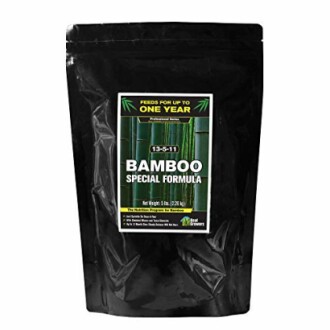
Best Fertilizer Options for Organic Gardening
Key Takeaways
- Organic fertilizers improve soil health and plant growth.
- Different fertilizers are suitable for various plants and gardening needs.
- Using organic fertilizers can lead to a thriving, sustainable garden environment.
When it comes to maintaining a healthy garden, understanding the best fertilizer options can significantly impact your plants' growth and overall soil health. Organic gardening emphasizes natural materials, avoiding synthetic chemicals that can harm the environment. In this comprehensive guide, we will evaluate the top organic fertilizers available on the market, their benefits, and how to choose the right one for your garden.
Why Choose Organic Fertilizers?
Organic fertilizers provide a range of benefits that promote sustainable gardening practices:
- Enhanced soil fertility and structure
- Improved moisture retention
- Reduction of chemical runoff and pollution
- Support for beneficial microorganisms in the soil
Types of Organic Fertilizers
Selecting the right type of organic fertilizer is crucial for your garden’s specific needs. Here are some common categories:
- Granular Fertilizers: Easy to apply and work into the soil; good for long-term nutrient release.
- Liquid Fertilizers: Fast-acting and easy to apply; ideal for quick nutrient delivery.
- Slow-Release Fertilizers: Provides nutrients over an extended period; reduces the need for frequent applications.
- Compost: An excellent source of balanced nutrition and improves soil structure.
Top Recommended Organic Fertilizers
Below are some of the best organic fertilizers available to enhance your garden:
| Product Name | Description | Link |
|---|---|---|
Jobe’s Organics Granular All Purpose FertilizerAn effective organic fertilizer suitable for vegetables, flowers, shrubs, and trees; promotes vibrant plant growth. Learn More |
An organic, all-purpose plant fertilizer with a 4-4-4 NPK ratio, great for a variety of plants. | View Product |
Bamboo Special 12 Month Control Release FertilizerA professional-grade, high nitrogen fertilizer ideal for bamboo plants and privacy hedges. Learn More |
This product offers a high nitrogen formula designed for fast growing bamboo plants, effective for up to 12 months. | View Product |
How to Choose the Right Organic Fertilizer
Choosing the right organic fertilizer involves several considerations:
- Identify your plants' specific needs and nutrient requirements.
- Consider the soil type and its current fertility levels.
- Check the packaging for NPK ratios to match your plants' needs.
- Read customer reviews and product specifications to ensure quality.
Application Tips
To ensure optimal results, keep these application tips in mind:
- Follow the recommended dosage instructions on the product label.
- Apply fertilizers during the early morning or late afternoon to prevent evaporation.
- Water the plants adequately after fertilization to help nutrients absorb into the soil.
- Monitor your garden's health regularly and adjust application frequency as needed.
Conclusion
Choosing the best fertilizer options for organic gardening is a crucial step towards sustainable plant care and enhancing your garden's beauty. With products like Jobe’s Organics Granular All Purpose Fertilizer and Bamboo Special Control Release Fertilizer, you can ensure your plants thrive without harmful chemicals. Invest in the right organic fertilizers and watch your garden blossom into a thriving ecosystem.
Beginner's Tips
- Start with a soil test to determine nutrient deficiencies.
- Begin with all-purpose organic fertilizers as they are typically versatile.
- Track your application rates and plant responses to develop best practices.
Pros
- Promotes soil health and plant vitality.
- Safe for the environment and non-toxic to wildlife.
- Easily customizable based on specific plant requires.
Cons
- May require more frequent applications than synthetic options.
- Some organic fertilizers can be more expensive.

